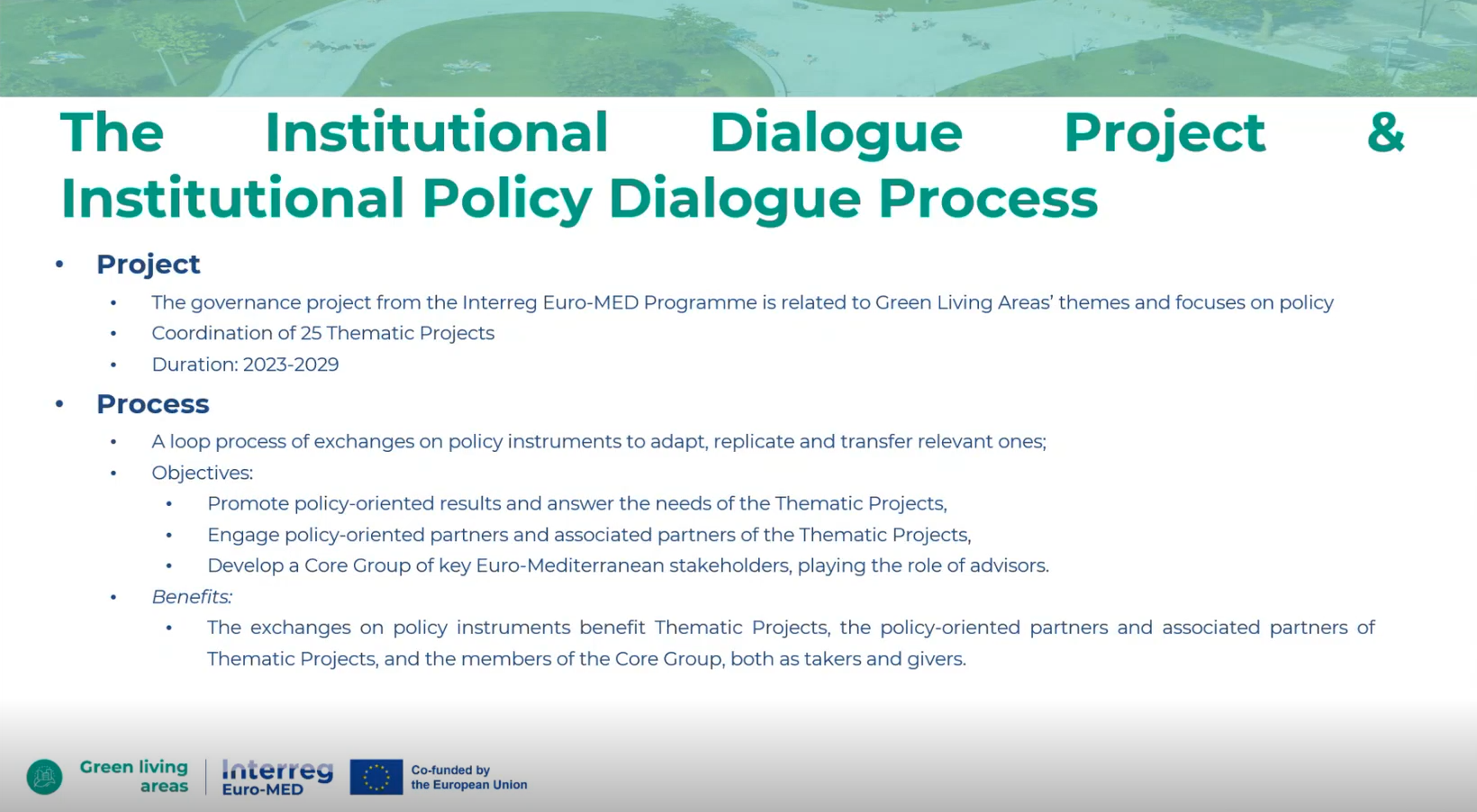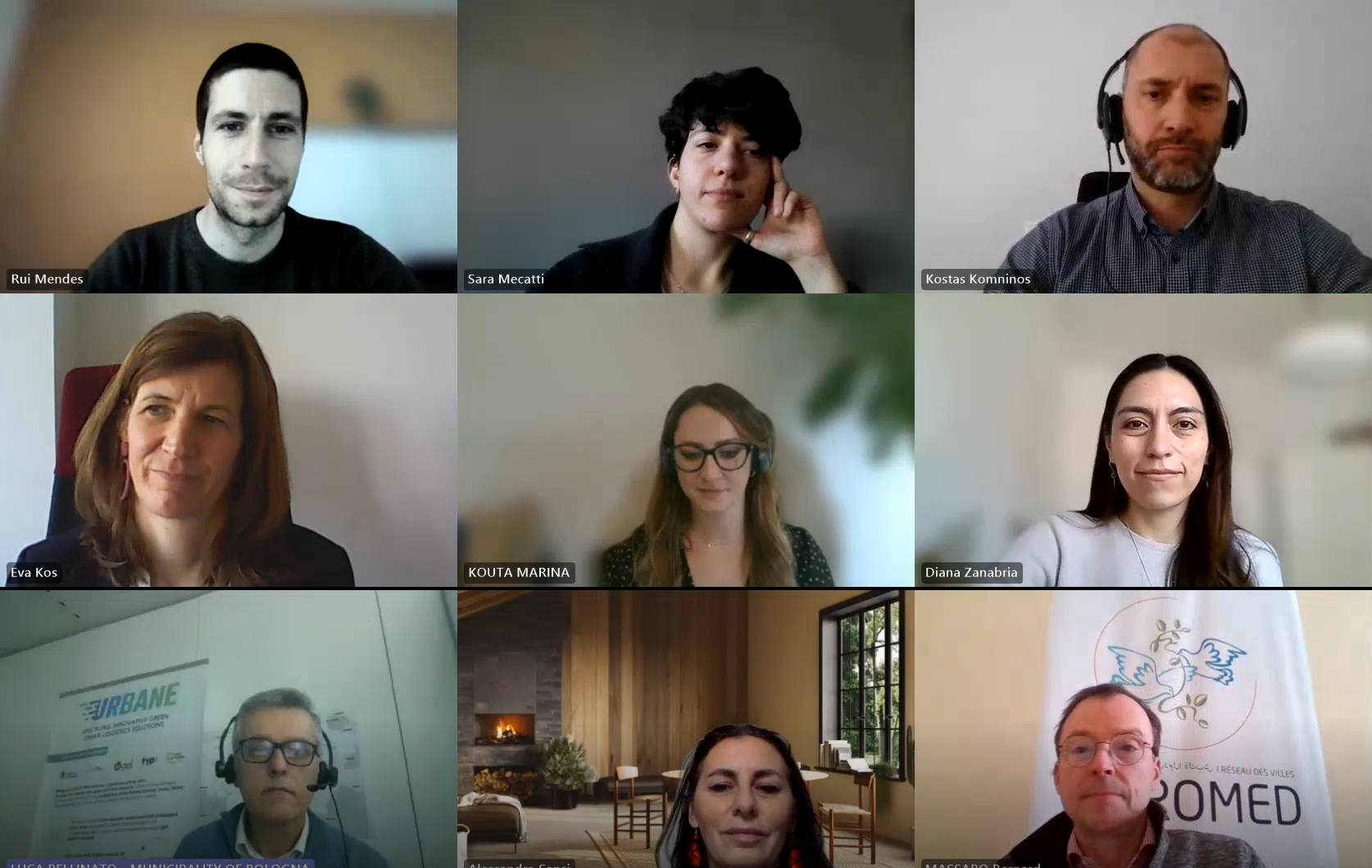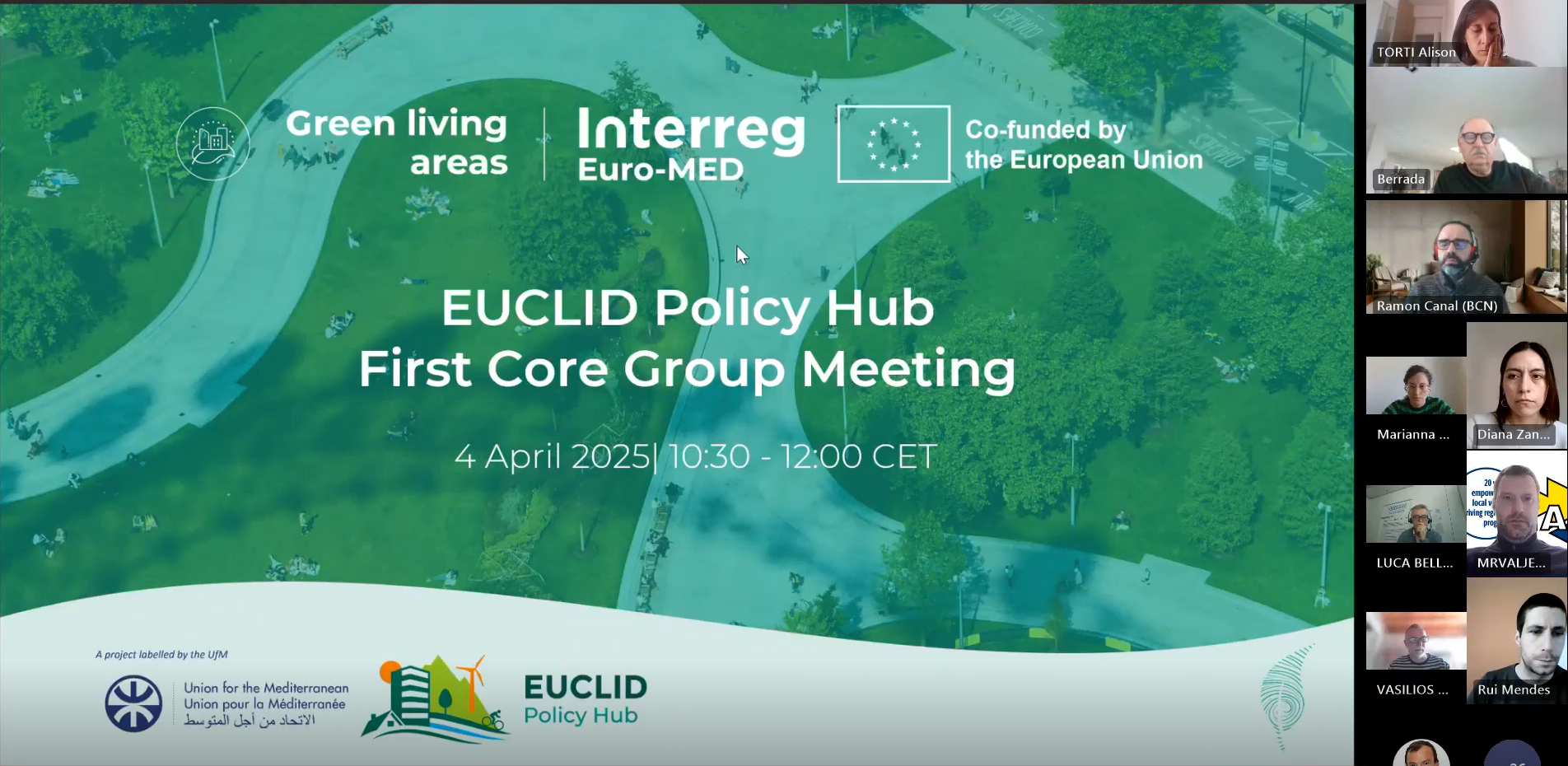On 4 April 2025, the first Core Group meeting of the EUCLID Policy Hub under the Green Living Areas Mission convened a diverse mix of policy-makers to set the tone for the year. This event was a great opportunity to align the Green Living Areas’ policy ambitions with the evolving needs of Euro-Mediterranean communities.
The EUCLID Policy Hub’s First Core Group meeting was an important initial step in interacting with the newly established group. Here, participants discussed the Green Living Areas (GLA) Mission, the Institutional Policy Dialogue process, and the accomplishments to date. The meeting included a brief statement from the Greek Municipality of Chalki, a policy champion that actively participated in the first Institutional Policy Dialogue process. Finally, participants shared an open discussion to ascertain the expectations and potential contributions of the participating policy-makers.
Along with the GLA Mission’s partners, about 20 important stakeholders joined the meeting. Among them were representatives from the European Commission (DG MENA and DG REGIO), the Union for the Mediterranean, EU programmes and regional strategies, and international, European, national, and local actors (e.g., municipalities, networks of regions or islands, and stakeholders representing the southern shore of the Mediterranean basin and the Balkan area).
 The event introduced the Institutional Policy Dialogue Process—a framework that bridges the gap between on-the-ground Interreg Euro-MED project outcomes and policy-level impact—and laid out the groundwork for the Core Group’s role in shaping future discussions.
The event introduced the Institutional Policy Dialogue Process—a framework that bridges the gap between on-the-ground Interreg Euro-MED project outcomes and policy-level impact—and laid out the groundwork for the Core Group’s role in shaping future discussions.
You can read the full minutes HERE.
Institutional Policy Dialogue: From Mapping to Mobilisation
Participants were introduced to the three foundational components of the dialogue process: policy mapping, stakeholder mapping, and policy windows. So far, 72 policies relevant to Green Living Areas have been identified and ranked for their potential to be adapted, replicated, or scaled in Mediterranean territories. These policies span key themes such as energy, mobility, planning, and community engagement.
Three policy briefs presented the outcomes of the 1st Institutional Policy Dialogue, providing practical recommendations and takeaways for policy replication:
- Sustainable Urban Logistics Plan (SULP) – Bologna’s approach to greener freight mobility.
- Superblock Policy – Strategies for urban redesign with community co-creation at the core.
- GR-Eco Islands Initiative – Greece’s push toward renewable energy and resilience on islands.
Each brief reflected on the importance of stakeholder involvement, integrated planning, and policy alignment with EU-level goals.
Testimony from Chalki: A GR-Eco Island Story
The meeting featured a testimony from Mr. Roussakis, Deputy Mayor of Chalki, who shared how the island became the first “GR-Eco” island in Greece. With an electrified transportation network and photovoltaic energy production, not only did Chalki slash emissions, but also reaped significant cost savings. Their active participation in the Institutional Dialogue has helped shape new ideas for green investments and sustainable entrepreneurship (read more in the corresponding policy brief).
EUCLID Methodology and Policy Hub Platform: what’s next
The meeting showcased the EUCLID Policy Hub’s methodology, built around stakeholder co-creation and real-world policy testing. The five-step approach—Connect, Identify, Implement, Evaluate, and Disseminate—aims to strengthen institutional dialogue and ensure measurable policy impact.
Additionally, participants were invited to engage with the forthcoming Policy Hub Platform, currently in its testing phase. This tool will facilitate knowledge-sharing, peer exchange, and access to policy instruments. These will all be tailored to the needs of both Core Group members and thematic community projects.
Exchange session from Core Group
An interactive session gathered stakeholder feedback, surfacing shared priorities and areas of interest. The expectations that emerged from the discussion with the Core Group were the following:
- Exchanging experiences and policy solutions,
- Understanding and improving policy landscapes,
- Building synergies with the broader Euro-MED missions,
- Exploring the replicability and scalability of successful initiatives.
The session also identified several needs to be addressed, including:
- Barriers and enablers in policy implementation,
- Delay reduction in policy development and deployment,
- Sector-specific interest in areas like water and waste management.
Linked to these needs, relevant services were suggested and ranked as:
- Peer exchange across Euro-MED stakeholders,
- Access to best practices and policy-oriented insights,
- Access to the Policy Hub Platform, together with lobbying and advocacy.
Looking Ahead: Dialogue Continues in June and October
As the Policy Hub gears up for a busy year, attention now turns to the next Core Group meeting, scheduled for 18 June 2025. There, the focus will be on preparations for the 2nd Institutional Policy Dialogue. The event will take place in Brussels on 15–16 October 2025, alongside the EU Week of Regions and Cities.
 In the meantime, Thematic Projects are invited to join the training on policy communication, hosted in Barcelona, on 28-29 May, during the 2nd Gathering of the GLA Thematic Community.
In the meantime, Thematic Projects are invited to join the training on policy communication, hosted in Barcelona, on 28-29 May, during the 2nd Gathering of the GLA Thematic Community.
The Green Living Areas Mission is on track to deepen its policy impact across the Euro-MED region through collaboration, knowledge-sharing, and a strong commitment to a greener and more resilient future.


